
Addressing Climate Change Starts With Meeting People Where They Are
November 29, 2023
To effectively address this global and complex challenge that uniquely shapes multiple aspects of human life across different regions, it is crucial to understand public perceptions and knowledge around climate change.
Climate change is a major worry for global citizens, with regional differences in perceptions and cautious optimism about reaching net zero emissions by 2050.
A recent survey by APCO reveals that climate change is a major worry worldwide, with nearly half of the people identifying it as a top concern. However, regional disparities are noticeable, with higher concern in the Americas and Asia-Pacific regions compared to Europe, the Middle East and North Africa. This variation might reflect regional experiences with climate impacts or the existence of other pressing global issues such as government corruption or conflicts and wars.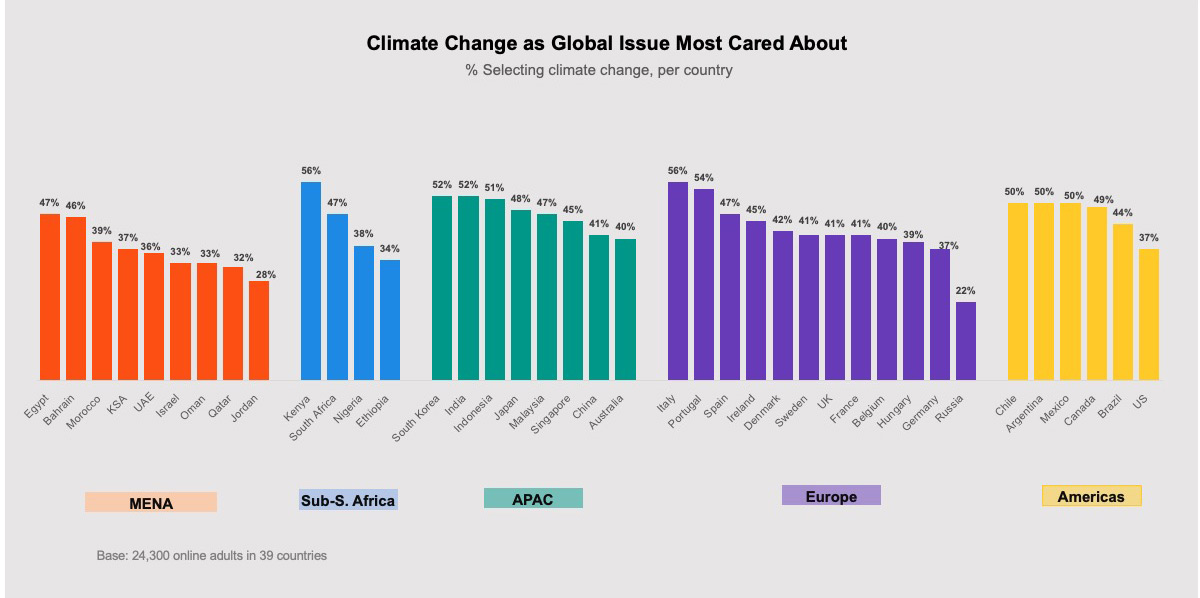
Furthermore, a strong consensus exists globally that climate change will impact lives within people’s lifetimes, especially in Asia-Pacific, the Americas and Sub-Saharan Africa. Yet, when it comes to the belief in a concrete plan to mitigate the effects of climate change, skepticism prevails for the majority of people around the world. Regional disparities are most notable in the Americas, where up to two-thirds of the people doubt the presence of an effective plan. A similar level of skepticism is echoed in Europe and the Middle East and North Africa regions. The only region with a sense of optimism is the Asia-Pacific, where 46% of the people feel there is a plan in place.
When prioritizing global issues, anti-corruption measures outweigh climate change for the Americas and Asia-Pacific. This urgency is even more pronounced in Sub-Saharan Africa, with a noteworthy 63% of the people emphasizing the importance of integrity. In this region, climate change is seen as a secondary priority compared to the immediacy of dealing with government and corporate corruption.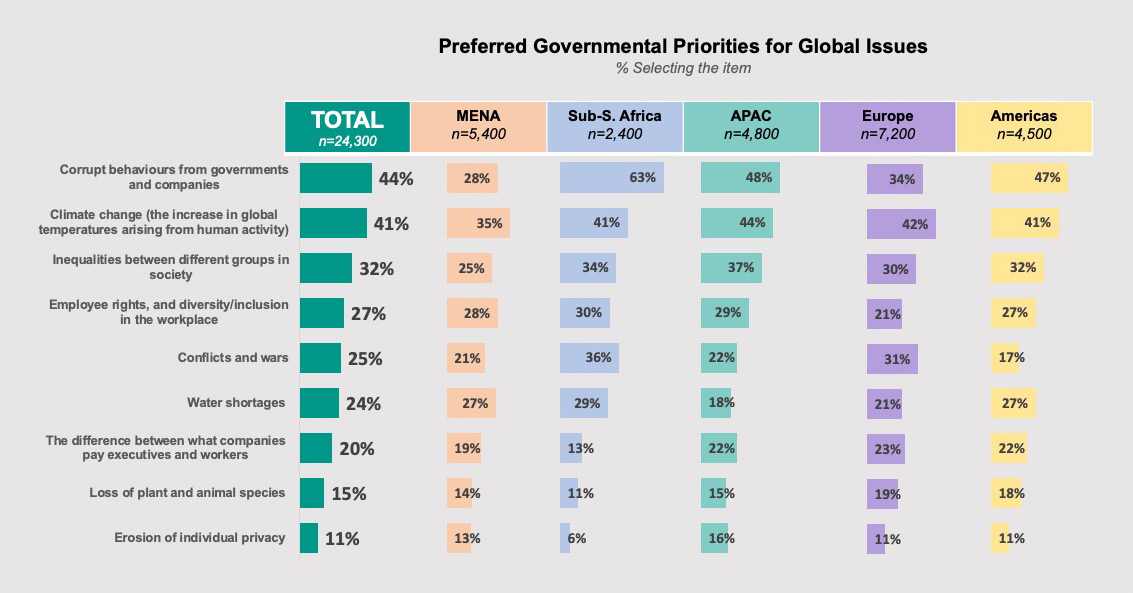
In assessing government communication regarding climate efforts, the survey identifies a significant information gap: 42% of individuals feel uninformed about their government’s climate initiatives. More people in the Americas (53%) and Europe (50%) lack information about their governments’ climate efforts compared to the APAC, where a lower, yet still sizable, 33% of individuals are uninformed. This indicates a gap in the proportion of people who feel informed about their country’s government efforts to combat climate change, pointing to potential disparities in government transparency or public engagement.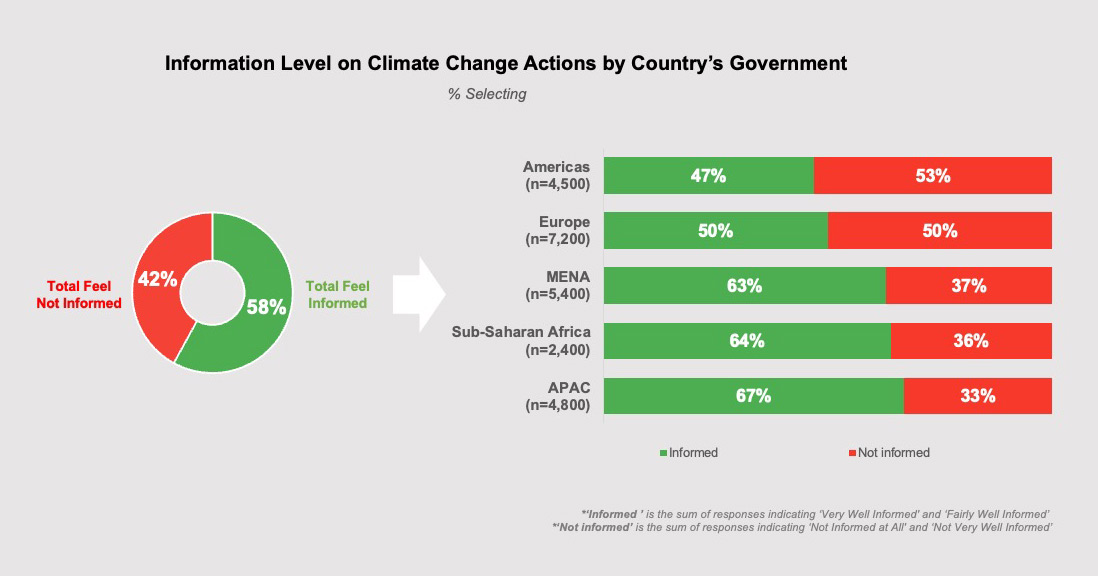
Despite the perceived lack of awareness around government actions, there’s cautious optimism about the possibility of reaching net zero emissions by 2050. Sub-Saharan Africa leads in confidence, with 67% believing the target is within reach. Optimism is also present in the Americas and Asia-Pacific regions, whereas Europe presents a more pessimistic view, with only 36% considering the goal achievable.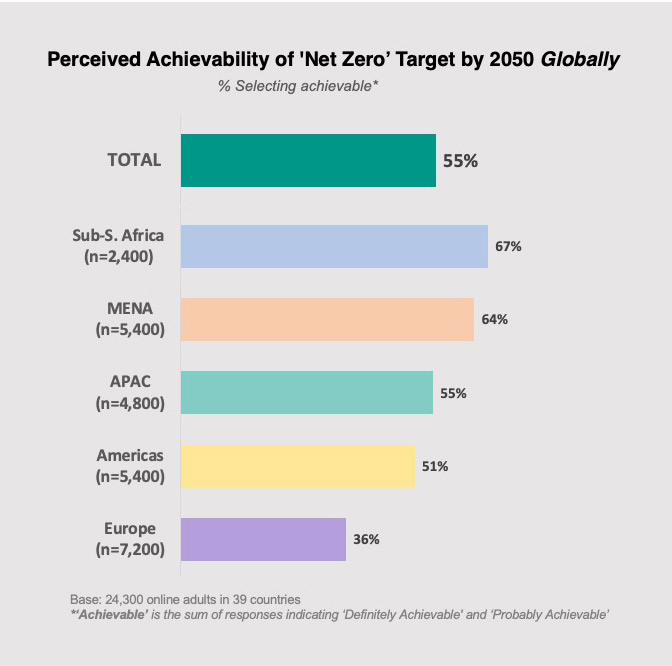
The survey, however, uncovers a troubling disconnect: a mere 17% globally are aware of their country’s actual policy status on net zero targets. This gap between optimism and awareness could hinder collective progress.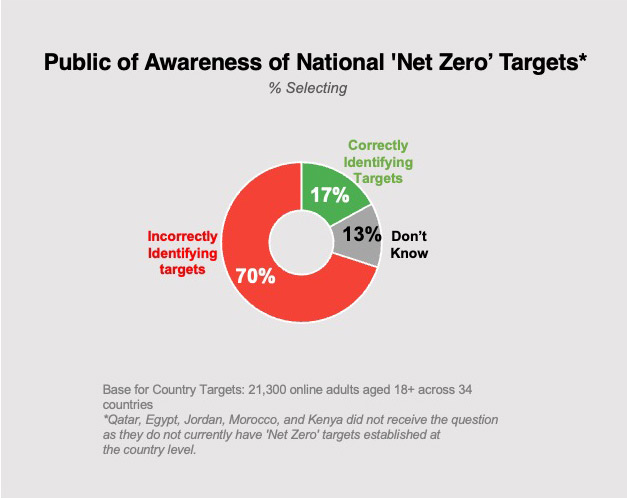
As for the actions taken by governments to reach the 2050 goal, dissatisfaction is apparent. Half the global adults feel governments aren’t doing enough. This frustration is most prominent in the Americas, Sub-Saharan Africa, and Europe, where the majority believe that governments are falling short in their efforts. Only 43% of the people globally believe that their governments are doing enough, with the Asia-Pacific and Middle East and North Africa regions showing the greatest confidence in their governmental efforts. 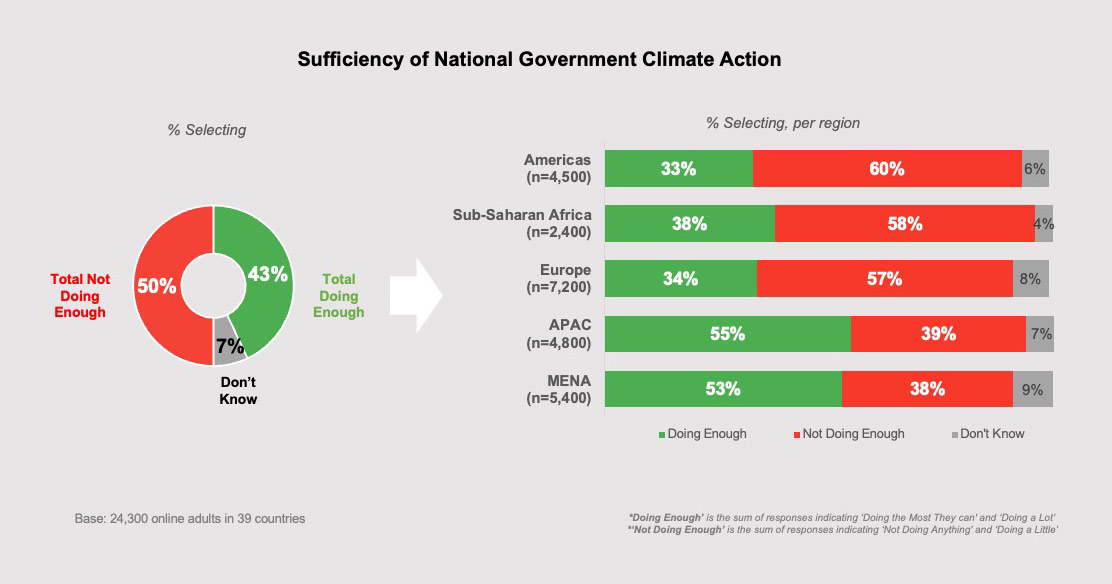
While climate change is a primary concern across different regions and a problem that will have significant impacts within our lifetimes, skepticism towards the sufficiency of current measures and lack of awareness about net zero targets indicate a need for immediate action, engagement and improved communication to inform the public about the actions taken.
Moreover, these results emphasize the importance of tailored approaches that consider regional differences in climate change perceptions and concerns. Strategies that successfully engage the public in one region might not be as effective in others, highlighting the importance of culturally and regionally relevant actions, engagement and communication strategies.
Ultimately, addressing climate change requires not only government action but also public engagement and collective movement. It is not just about setting targets; it is about taking necessary actions and involving and inspiring the public every step of the way.
APCO Insight, the research division of APCO Worldwide in partnership with WBCSD, conducted a comprehensive online survey across 39 markets* globally with 24,300 adults to gain insights into public concerns, awareness around net zero targets, and government action against climate change. We gathered responses from five regions including the Americas, Asia-Pacific (APAC), Europe, the Middle East and North Africa (MENA) and Sub-Saharan Africa.
*The markets are Argentina, Australia, Bahrain, Belgium, Brazil, Chile, China, Denmark, Egypt, Ethiopia, France, Germany, Hungary, India, Indonesia, Ireland, Israel, Italy, Japan, Jordan, Kenya, KSA, Malaysia, Mexico, Morocco, Nigeria, Oman, Portugal, Qatar, Russia, Singapore, South Africa, South Korea, Spain, Sweden, United Arab Emirates, United Kingdom and United States.